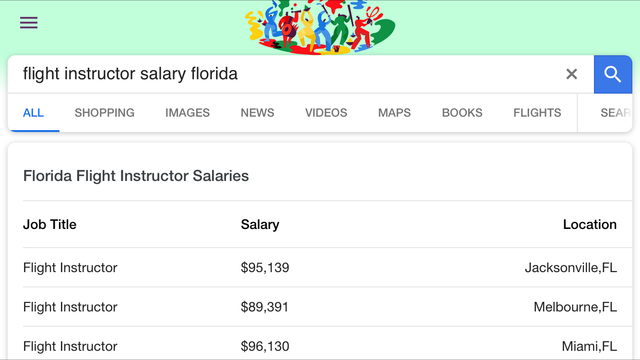EchoKilo
Pre-takeoff checklist
- Joined
- Feb 27, 2018
- Messages
- 119
- Display Name
Display name:
EchoKilo
As a 20-something who hasn't figured out what he wants to do with his life, I'm here to ask about aviation certifications and potential careers. As those of you who've read my other thread know, I plan on finishing my PPL this summer. After that I'm really tossing around the idea of going on to get my instrument, and eventually commercial, ratings. So my questions are these:
1) How many hours additionally is an instrument and commercial rating? I may be terrible at research, but I couldn't seem to pinpoint how many hours it is for these tickets. Essentially, what will I have to do to obtain it?
2) What does it take on top of a commercial rating to become a CFI?
3) Becoming a CFI is what I'm most interested in currently. I typed "how much does a flight instructor make" into google and got the following response:
"The median annual Flight Instructor salary is $99,103, as of January 30, 2018, with a range usually between $91,111-$111,575, however this can vary widely depending on a variety of factors."
Trying not to get too excited, I decided to ask actual pilots if this is the case? There's also other things to consider as well, like job security. How much demand will there be for this job in 20, 30, 40 years? Is becoming a CFI for a living a good idea? Is working for a nice flight school better than freelancing it?
Thanks for all answers and wisdom!
1) How many hours additionally is an instrument and commercial rating? I may be terrible at research, but I couldn't seem to pinpoint how many hours it is for these tickets. Essentially, what will I have to do to obtain it?
2) What does it take on top of a commercial rating to become a CFI?
3) Becoming a CFI is what I'm most interested in currently. I typed "how much does a flight instructor make" into google and got the following response:
"The median annual Flight Instructor salary is $99,103, as of January 30, 2018, with a range usually between $91,111-$111,575, however this can vary widely depending on a variety of factors."
Trying not to get too excited, I decided to ask actual pilots if this is the case? There's also other things to consider as well, like job security. How much demand will there be for this job in 20, 30, 40 years? Is becoming a CFI for a living a good idea? Is working for a nice flight school better than freelancing it?
Thanks for all answers and wisdom!

